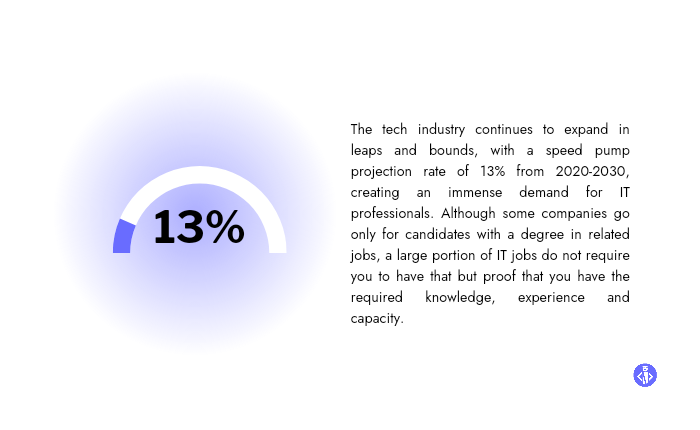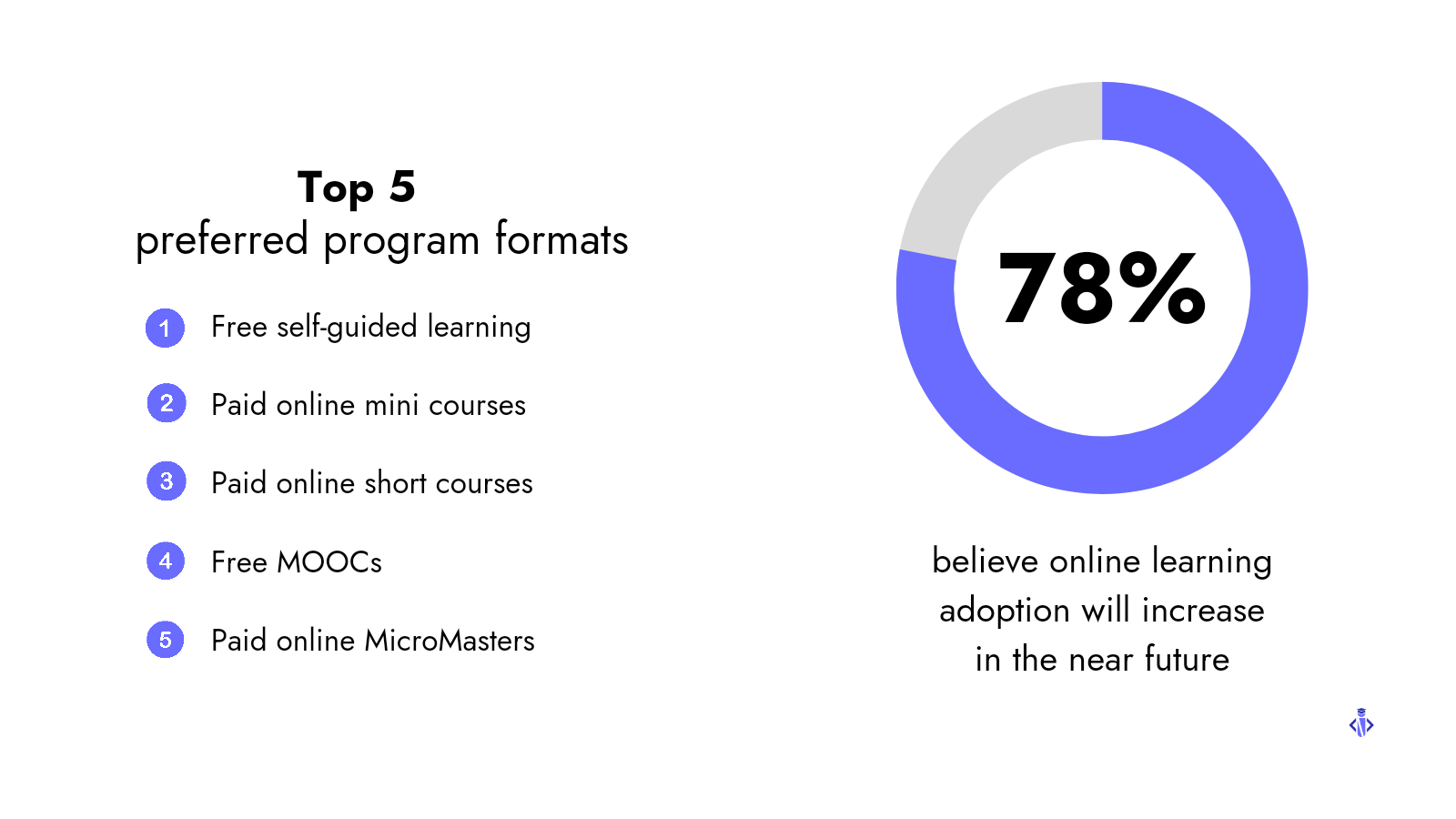Currently Empty: $0.00
aptLearn
Navigating A Tech Career Without A Tech Degree

Jason Wang broke into tech as a self-taught programmer without a tech degree. He moved from spending time taking online courses, to attending a coding boot camp, to buckling down and going after elusive job offers. A year after, he landed himself a full-time software engineering position at an international company. Read his full story here.
Thomas Zhu started off his early career as a financial analyst and now he’s found himself building apps and games. With almost a similar breakthrough story to Jason’s, he began his journey to tech with online classes, few in-person coding bootcamps, then internships to improve his learnings. Now, Thomas is a senior software engineer for a top EV charging station company. Learn more about how he did it.
With no background knowledge nor experience, Brenda Michelle kicked off her career in tech as a self-taught web developer with no prior intent to monetize this seemingly lucrative skill. From shuffling between YouTube channels to various e-learning resources, Brenda succeeded in topping her game and now she’s turned pro, making millions doing what she loves. Find out more interesting things about her transitioning journey here.
Myths are commonplace in every field, and the tech space is no exception. As a person interested in the technology field or with IT on their radar but no degree in related subjects, you probably would be pressured or afraid that you do not have the background chops and juice to succeed in the field.
Well, you will be happy now to know that being unable to get into tech outside the traditional college route is only a myth.
Yes, you can navigate a tech career without a tech degree; you might just be the next Jason Wang or Brenda Michelle or bigger even. And in this article, you will find out how!
How Do You Get into Tech Without a Tech Degree?
The tech industry continues to expand in leaps and bounds, with a speed pump projection rate of 13% from 2020-2030, creating an immense demand for IT professionals. Although some companies go only for candidates with a degree in related jobs, a large portion of IT jobs do not require you to have that but proof that you have the required knowledge, experience and capacity.
 This means that there are other pathways to a career in tech and having a degree in computer science or other related fields of study is only one. According to IBM’s head of talent organization, Sam Ladah, currently about 10% to 15% of IBM’s new hires don’t have traditional four-year degrees.
This means that there are other pathways to a career in tech and having a degree in computer science or other related fields of study is only one. According to IBM’s head of talent organization, Sam Ladah, currently about 10% to 15% of IBM’s new hires don’t have traditional four-year degrees.
What Are the Other Pathways to a Tech Career Outside of a Tech Degree?
Since you are looking at breaking into tech without a tech degree, to start with, you need to do your research before anything. Know and have a grip on the different career paths available in the industry in order to discover and decide on your interest or the niche to explore. After this, you can proceed with learning, acquiring and mastering the relevant skills and tools to succeed in your chosen path.
Other pathways to acquire this knowledge, experience and capacity outside of a tech degree include:
- Certifications
- Online Resources
- Applied Learning and Project Developments
- Bootcamps/ Cohort Training
- Internships or Traineeships
- Hackathon Groups
Let us find out more about them!
What Exactly About Certifications?
Numerous ed-tech platforms provide online or in-person education on various tech skills and knowledge you need to thrive in the tech space. Platforms like aptLearn, offer courses with certifications, covering on-demand tech skills at a fraction of the cost and time. Getting certified by such platforms can help you launch your tech career by providing independent proof that you have obtained the required training.
Well, you need to know that acquiring certifications does not incline the end of your career transition or automatically guarantee you a tech job, just the same way a degree does not. You will still need to sell yourself as much to stand out.
What Can You Do with Online Resources?
The internet is now described as the citadel of learning as a large percentage of people now turn to upskilling through online resources from the comfort of their homes. From video content to audio to books, the bulk of the things you need to learn about your chosen tech career path can be found online. There are a variety of valuable resources online that you can commit to learning at your own pace. Yes, you can self-study with tutorials and study guides. A lot of techies out here kick-started their journey using this method.
Being practical and experimental as you self-learn is very important if you go through this route. Also, tech experts highly recommend that you be visible and active in tech communities and spaces to enhance your journey into the field.
Doing More with Applied Learning and Project Developments?
Applied Learning is a hands-on educational approach whereby students learn by engaging in direct application of skills, theories and models to hands-on and real-world settings. Taking instructor-led tech programs, with video lessons that show how-to, allows you to improve your understanding and retention, and gain experience at the same time.
With project developments, you get to engage in hands-on practice with what you’ve learnt while building projects of your own or contributing to open-source projects. Having projects to show your knowledge and experience will help in impressing your prospective employers.
What Are Bootcamps/Cohort Training?
Attending boot camps or cohorts is another increasingly popular way to break into tech. Bootcamps or cohorts are intensive and short-term training programs by organizations, providing participants with a strong foundation in information technology and helping them get job ready in a few months.
Although they mostly require a massive chunk of cash to get in, boot camps or cohort investments are usually worth it if you choose the right one. Aside from certifications, some even offer job placement upon completion to make transitioning as easy as possible for graduates. Have a look at these five tips to help you choose the right educational Boot Camp.
Internships Or Traineeships?
Landing an intern or trainee position is another efficient pathway to navigating a tech career without a tech degree. Opportunities like this expose you to knowledge, hands-on experience, capacity building, network, and continual upskilling.
Despite its perks, this route appears to be slightly tricky for starters. This is because employers prefer to take in applicants with at least basic knowledge and experience in open roles, giving them an avenue to grow in such roles. That is, they barely look at training applicants from scratch. Regardless, there are numerous companies out there that are willing to make that much investment.
However, to make your entry easier, experts advise that you only prepare for such opportunities after acquiring the theoretical knowledge of your chosen tech path.
Have You Heard About Hackathons?
Hackathons help students develop vital technical and social skills that they will need to compete in any workplace. They can boost your CV, build your skill set and improve your employability.
There are safe environments to experiment with new technologies and tools and build any technical skills, giving you the experience to engage in practical tasks and deliverables.
Conclusion: What is next?
Now that you know that you do not need a tech degree to pivot to a career in tech and the different pathways available, the next is starting out to get your slice of the impressive salaries and excellent perks of the booming industry.
Remember that whichever route you choose to follow, all that matters is you having to show that you have all it takes to succeed in a job. Hence, be open to constantly learning, building and upping your skills, and acquiring necessary experience.
Want to learn more? Read this comprehensive article on how and where to get started with tech.
About aptLearn
aptLearn is a UK e-learning educational platform that provides a comprehensive course library covering today’s most in-demand digital skills needed to compete in today’s economy, as well as professional certificates at a fraction of the cost, time, and location of choice.



